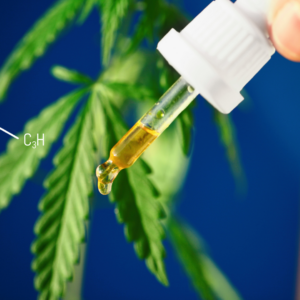 Since 2021, CBD (cannabidiol) and CBD-containing products have been subject to the EU Novel Food Regulation (EU) 2015/2283 when seeking authorization for the European market as a novel food. This regulation outlines the procedures and requirements for obtaining an unknown food authorization for CBD products.
Since 2021, CBD (cannabidiol) and CBD-containing products have been subject to the EU Novel Food Regulation (EU) 2015/2283 when seeking authorization for the European market as a novel food. This regulation outlines the procedures and requirements for obtaining an unknown food authorization for CBD products.
Here are the general steps and considerations for obtaining a novel food authorization for CBD products in Europe:
- Determine Novel Food Status: Confirm whether your CBD product is considered novel according to the EU Novel Food Regulation criteria. If it falls under the definition of novel food, you must seek authorization.
- Compile Comprehensive Data: Gather detailed scientific data and information on the safety of your CBD product. This may include data on its composition, manufacturing process, potential risks, and historical use outside the EU.
- Submit a Novel Food Application: Prepare and submit a novel food application to a designated EU Member State’s competent authority. The application should include all necessary documentation, scientific studies, and safety assessments for your CBD product.
- Validation and Consultation: The competent authority reviews your application for completeness and validity. During the process, they may also consult with other EU Member States and the European Food Safety Authority (EFSA).
- EFSA Evaluation: If the application is deemed valid, EFSA’s Panel on Nutrition, Novel Foods, and Food Allergens (NDA Panel) conducts a scientific evaluation of your CBD product’s safety. This evaluation may involve reviewing the data provided in the application and conducting a risk assessment.
- Public Consultation: EFSA may initiate a public consultation to gather additional input and information from stakeholders, experts, and the public regarding your CBD product.
- EFSA Scientific Opinion: Based on its evaluation and any public input, EFSA provides a scientific opinion on the safety of your CBD product as a novel food.
- European Commission Decision: The European Commission and EU Member States use EFSA’s scientific opinion to decide whether to authorize your CBD product as a novel food in Europe.
- Authorization: If your CBD product is authorized as a novel food, you can then legally market and distribute it within the EU.
It’s important to emphasize that the above steps provide a general overview of the process and requirements for obtaining a novel food authorization for CBD products in Europe. The specifics of the process required documentation, and criteria may vary based on individual cases and potential regulatory updates.
To navigate the complex regulatory landscape for CBD products in Europe, working closely with regulatory experts, consultants, and legal professionals knowledgeable about the latest regulations and procedures is highly recommended. They can provide guidance tailored to your specific situation and ensure that you meet all the requirements for obtaining a novel food authorization for your CBD product.
EFSA’s procedure for regulating CBD as a Novel Food

The European Food Safety Authority (EFSA) is responsible for evaluating the safety of novel foods, including CBD. Here is a general overview of the status of CBD as a novel food and the EFSA procedure:
- Novel Food Status: CBD and CBD-containing products are considered novel foods in the EU because they were not widely consumed as food before the cut-off date of May 15, 1997.
- Regulatory Framework: CBD and novel foods derived from the cannabis plant, including hemp, are subject to the EU Novel Food Regulation (EU) 2015/2283. This regulation outlines the procedures for authorizing novel foods and ensuring their safety before they can be legally marketed within the EU.
- EFSA Evaluation: Once the application is submitted and validated, it undergoes a thorough evaluation by EFSA’s Panel on Nutrition, Novel Foods, and Food Allergens (NDA Panel). Based on the scientific data provided, the panel assesses the safety of the novel food, including potential risks and benefits.
- Public Consultation and Scientific Opinion: EFSA may initiate a public consultation to gather input from stakeholders, experts, and the general public regarding the safety and potential risks of the novel food, including CBD. Based on the above evaluation and any public input, EFSA provides a scientific opinion on protecting novel food, including CBD. This opinion is a basis for the European Commission and Member States to decide whether to authorize the novel food for the EU market.
- European Commission Decision: The European Commission, along with EU Member States, uses EFSA’s scientific opinion to make a final decision on whether to grant authorization for novel foods, including CBD. If authorized, the CBD product can be legally marketed within the EU.
I recommend visiting the official EFSA website and consulting the latest guidance documents or speaking with one of our regulatory specialists about the regulations related to novel foods and CBD. For more information, click here:


